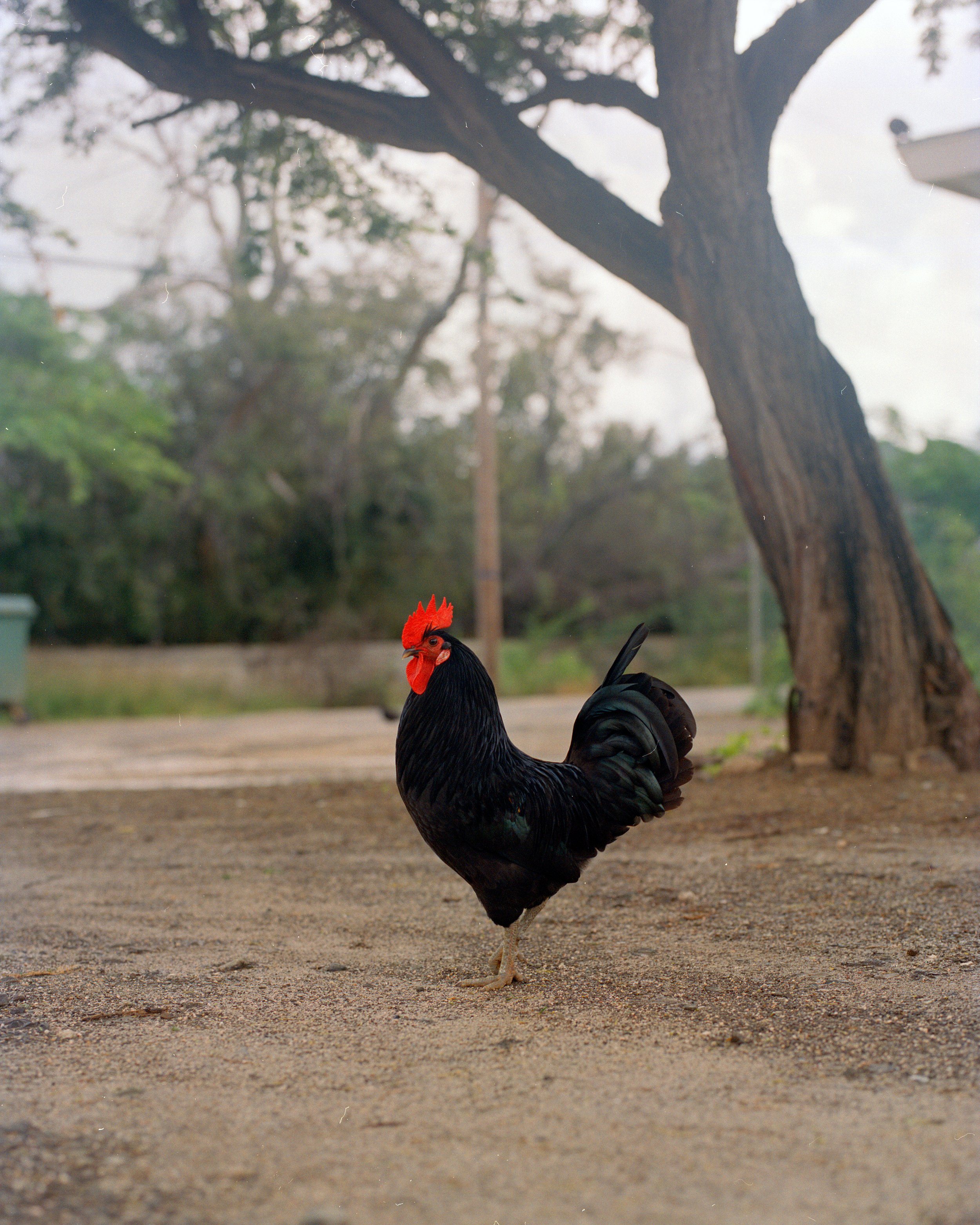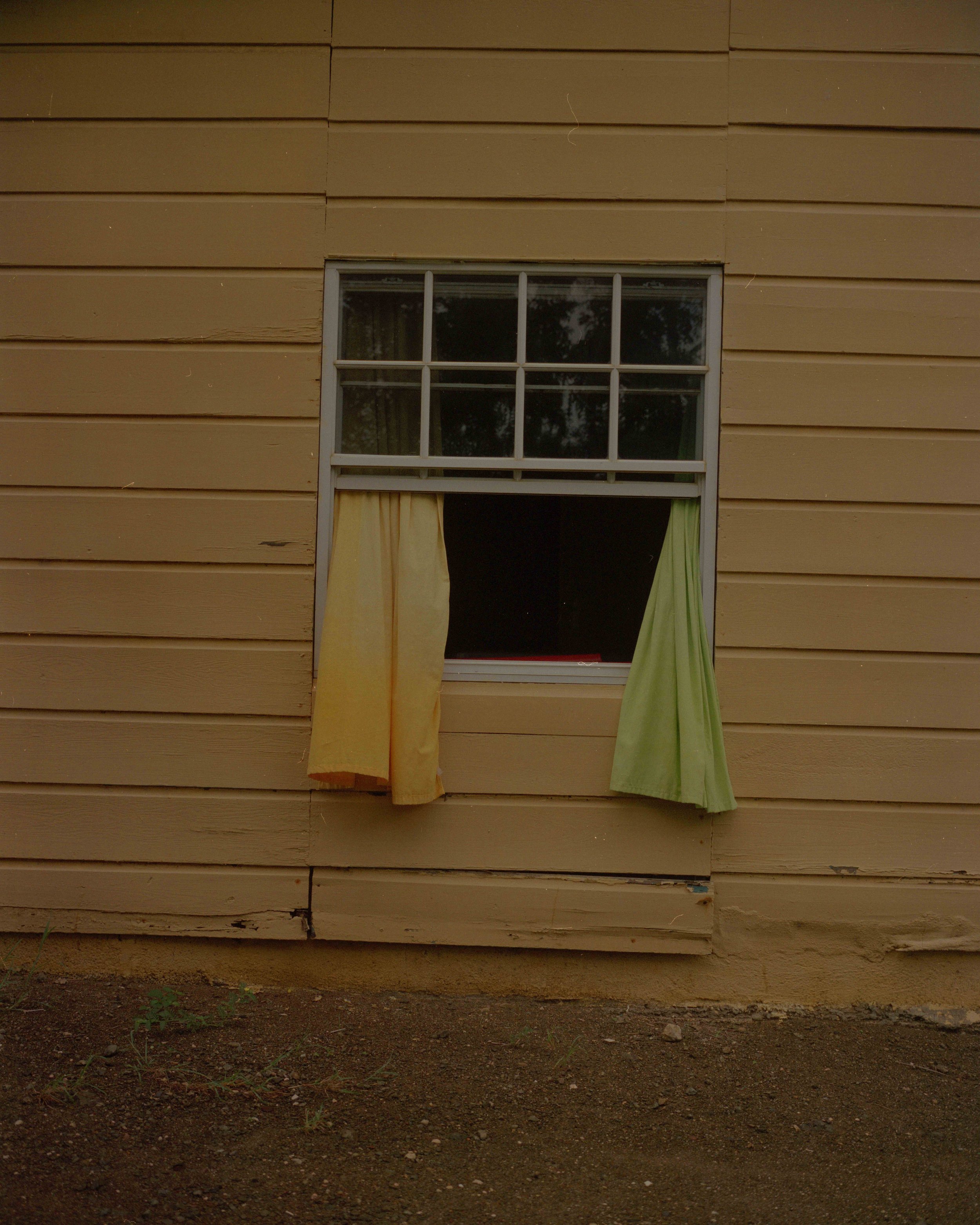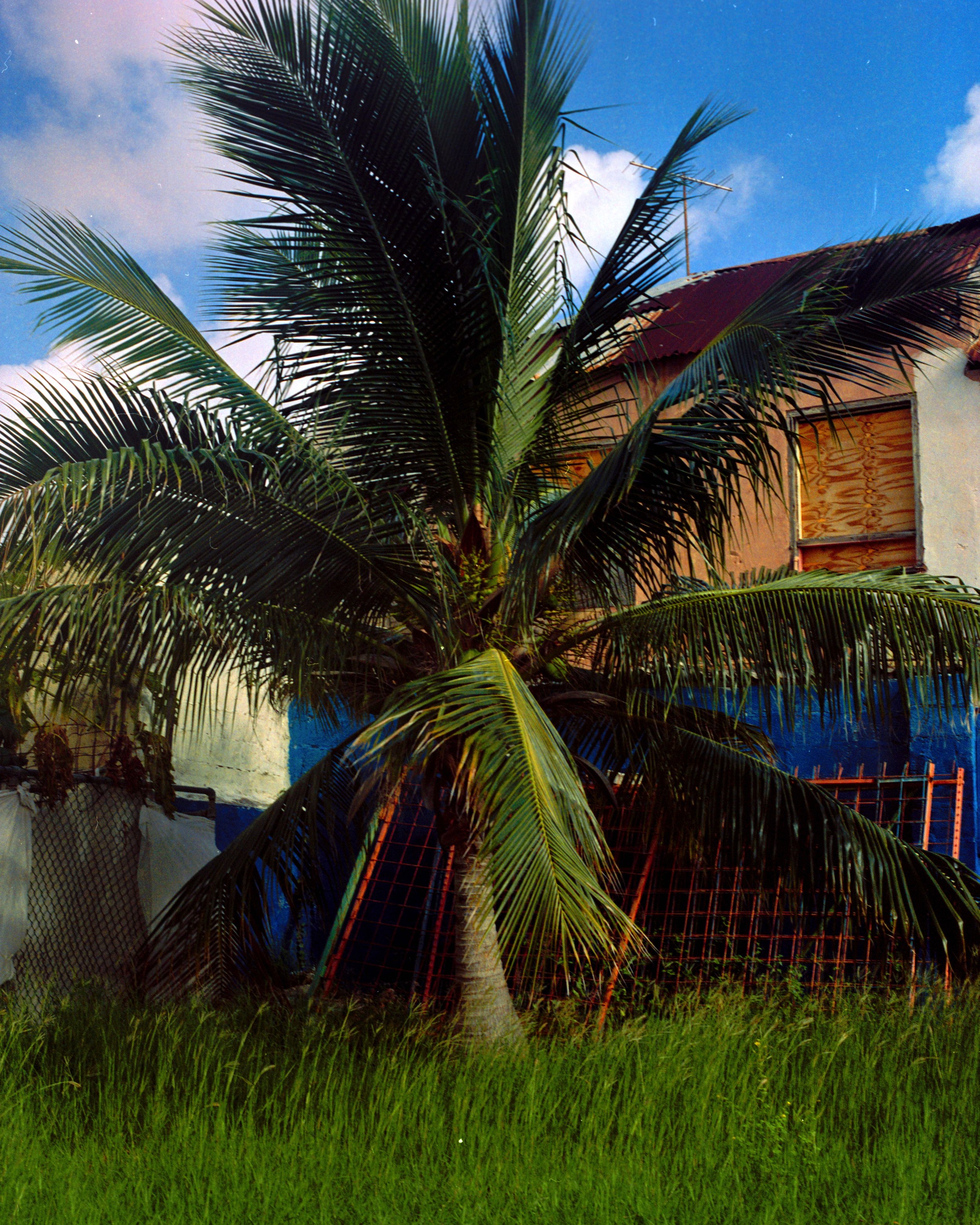Click Here to listen to “Soko”,released in August 2021 on Sunnyside Records.
Jean-Jacques Rojer- Guitars, Warren Wolf -Vibraphones, John Benitez- Bass, Jeff “Tain” Watts - drums, Pernell Saturnino - Percussion, Brian Bacchus - producer, Gregory Elias - executive producer. Recorded by Fran Cathcart, edited by Jean-Jacques Rojer, mixed by Oscar Bor and masterded by Dave Darlington.







Soko liner notes - Bill Wilkowski
Though guitarist-composer Jean-Jacques Rojer resides in Amsterdam, just 50 kilometers from where he graduated with a music degree in 2003 from the Royal Conservatory in The Hague, his heart remains nearly 8,000 kilometers away in the tiny Dutch island country of Curaçao in the southern Caribbean Sea. It is home for Rojer and where he absorbed the indigenous African-rooted rhythms of tumba, danza, tambú and seú as well as the local muzik di zumbi style. Descending from a long line of acclaimed Curaçaoan musicians (his father Robert Rojer is an accomplished pianist-composer, his great grandfather Jacobo Palm is a renowned multi-instrumentalist and prolific composer, and his great, great, great grandfather Jan Gerard Palm is often referred to as “the father of Curaçao’s classical music), it was probably a fait accompli that Jean-Jacques would follow in the footsteps of his ancestors. But the versatile and talented musician ended up forging his own unique path on the road to Soko, his exciting Afro-Curaçaoan jazz project, and third recording as a leader.
“My father’s taste in music kind of seeped through me,” said Rojer. “He was really coming from the European tradition of Francis Poulenc, Alexander Scriabin, Stravinsky, Bach. Those were his favorite composers, so I grew up listening to them. In the house, we only used to listen to European classical music as well as classical music from Curacao, which is a Palm family tradition going back 200 years.”
Whether it was a consciously defiant act or just the natural curiosity of a teenager, Rojer gravitated toward rock guitar. “My father tried to give me some piano lessons, but I rebelled. I would just say, ‘No, I'm gonna do it my way.’ In the end, I did learn a lot from him though.”
Strangely, it was a Lenny Kravitz album that ended up turning his head toward jazz. “I remember buying this record because Slash was on it. I was really into rock then and had a Les Paul guitar at home. But there was one track on this album, ‘What Goes Around Comes Around,’ that had a jazz saxophone solo. It completely blew my mind and that got me into that music, basically.”
Jazz guitar greats George Benson and Pat Metheny would later impact Rojer, and you can still hear those influences today in his cleanly articulated, warm-toned lines. His interest in jazz deepened through his college years, first at the University of the Netherlands Antilles and then at the Royal Conservatory in The Hague, and also through a brief apprenticeship in 2007 with renowned Cuban clarinetist-saxophonist Paquito D’Rivera. But Rojer never abandoned the folkloric music of his beloved homeland or the classical music he soaked up from his father.
In 2017, Jean-Jacques paid homage to his own classical roots with his self-produced album, Jean-Jacques Rojer Plays Jacobo Palm, a salute to his great grandfather that featured his father Robert Rojer playing piano on eight tracks. Now with Soko, the Curaçaoan guitarist-composer and defacto ethnomusicologist explores uncharted territory, striking a balance between respecting the African rooted rhythms of the island and stretching into a more modern jazz realm. The results are eminently fresh, undeniably captivating, and ultimately enriching.

With producer Brian Bacchus pulling together an all-star crew of veteran Nuyorican bassist John Benitez (Eddie Palmieri, Tito Puente, Ray Baretto, Pedrito Martinez), vibraphonist Warren Wolf (an esteemed composer and bandleader in his own right and longtime member of Christian McBride’s Inside Straight), percussionist and Curaçao native Pernell Saturnino (Chick Corea, Paquito D’Rivera, David Sanchez) and the great Jeff “Tain” Watts on drums, Rojer had his ideal mix of musicians for this stimulating cross-pollination project.
“Even though Curaçao is small, it's got a very rich culture,” said the leader. “Besides our strong African heritage there’s also a lot of American cultural influence there, and we have European influence, politically and economically, because we’re Dutch. The Latin influence comes in because of where we are located in the Caribbean. Everyone is, at least partly, of Latin American extraction — my mom’s family, for example, is from Venezuela — and our language is also Latin derived. So that mixture of all these influences is what I wanted to portray in this music.”
The guitarist plays with rare authority and rhythmic assuredness throughout these 11 tracks, blowing cleanly picked single note lines over shifting Afro-Curaçaoan rhythms while blending with vibist Wolf on intricate heads and delivering richly appointed chordal harmonies. The combination of guitar and vibes may trigger memories of the Pat Metheny-Gary Burton hookup from the ‘70s, but the churning polyrhythmic undercurrents heard throughout Soko put Rojer and Wolf in a very different zone indeed.
On the African flavored 6/8 opener, “Zumbi,” the guitarist and his stellar crew channel ancient spirits on this Rojer original written in the muzik di zumbi style of Curaçao. “In the countryside, you have many African styles of music,” he explained. “One is muzik di zumbi, which means ‘music of the ghosts.’ And it’s almost extinct. Also, the language that was used for singing it, Guene, is extinct because the people are not here anymore; they’re ghosts. So this is an ode to the people that have gone and the whole culture that has almost disappeared.”
Having studied old slave recordings extensively in the past, Rojer noticed how closely related the minor pentatonic singing style of muzik di zumbi in Curaçao was to American blues. “One of the things that disappeared from Curaçao culture throughout the years is the modal singing in minor keys,” he explained. “Everything in Curaçao is major, major, major, dominant tonic, dominant tonic. So I wanted to bring that muzik di zumbi quality back on this number, using a specific minor pentatonic mode that I borrowed from Malian music ”
Underscored by Pernell’s entrancing wiri (metal güiro) and informed by a bubbling 6/8 pulse, Rojer applies right hand muting on the strings for percussive (and quintessentially West African) effect before wailing over the top of the polyrhythmic undercurrent created by Benitez, Watts, and Saturnino.

“Guiambo”( a Curaçaoan ocra dish similar to gumbo) carries a deep funk feel as Watts fuels the proceedings with a New Orleans style second line groove. “We do have the Carnival culture in Curaçao, so that’s also a connection to New Orleans,” Rojer said. “It’s that bounciness that I wanted for this tune. And when I explained it to Tain, I just wrote the word ‘bounce’ on a sheet of paper and he came back to me and said, ‘Oh, you mean New Orleans!’ He knew exactly what I meant.” Rojer and Wolf shift back and forth between tight unisons and conversational contrapuntal lines on this earthy number. And catch Rojer quoting from Tadd Dameron’s bop anthem “Hot House” in the middle of his energized solo.
Shifting gears from the funky to the sublime, they ease into relaxed ballad mode on “Roce.” Essentially a bolero, this enchanting number strikes a vibe reminiscent of the ‘70s Philly soul group, The Stylistics. Said the composer, “I’m a big fan of ‘70s music — salsa music from the ‘70s, Brazilian music from the ‘70s, funk music from the ‘70s. So maybe that’s where that influence comes from.”
“Ruas,” which means ‘streets’ in Portuguese, opens with a catchy Brazilian baião rhythm before quickly morphing into an all-out swinging affair fueled by Tain’s irrepressible ride cymbal beat and Benitez’s uptempo walking basslines. Rojer holds nothing back here, blowing with boppish facility over the changes. And Wolf follows in kind, revealing his inner Bobby Hutcherson on his own killing solo. ”I intended it to be a baião through the whole song but as we were messing around in the studio I told the guys, ‘At a certain point I wouldn't mind it to go into swing.’ So it’s between baião and swing. And Tain has the capacity to go between those two worlds very organically.”

Rojer pairs with Saturnino, playing udu drum, for a delicate duet reading of the serene danza, “O ma charmante, épargnez-moi!” (“Oh, my charmer, spare me”) by the New Orleans French Creole composer Louis Moreau Gottschalk. Shifting imperceptibly from minor to major, this romantic work, written in 1854 during Gottschalk’s tour of the West Indies, reveals the guitarist’s classical side. “It was actually written for piano, so I had to transfer it to guitar,” he explained. “And I added some subtle reharmonization to make it a bit more modern.”
From refined and restrained back to pure burn, Rojer unleashes Benson-esque chops on the fiery descarga “Dindin.” Fueled by a distinctly Afro-Caribbean cascara pattern on the shells of Tain’s kit, in combination with Saturnino’s churning conga work, this lively jam features some brilliant improvisations from Wolf and Rojer, each pushing the harmonic envelope while swinging forcefully. (Notice Rojer’s nimble arpeggiating and sweep picking on his fiery solo here, and catch Benitez quoting from “Acknowledgement,” the opening section to John Coltrane’s masterwork, A Love Supreme, at the tag). The composer explained the title: “In Curacao, sometimes we name houses. Dindin is the house of a friend of mine which is located on a cliff overlooking the sea. It’s where musicians go after the North Sea Jazz Festival in Curaçao to hang out, drink beer, watch the sun go down, talk crap. Once we had the whole Snarky Puppy band there jamming and swimming and eating barbecue and drinking. Cassandra Wilson was there last year. Everybody goes there. In fact, that’s where I met Brian Bacchus, who ended producing this album.”
The composer explained the title: “In Curacao, sometimes we name houses. Dindin is the house of a friend of mine which is located on a cliff overlooking the sea. It’s where musicians go after the North Sea Jazz Festival in Curaçao to hang out, drink beer, watch the sun go down, talk crap.
The title track, steeped in a deep 6/8 groove, has Saturnino playing congas and overdubbing wiri. On top of that infectious African pulse, Rojer once again mutes his strings, as he did on “Zumbi,” to percussive effect. Wolf soars on his solo here and Rojer responds with some heat of his own on another outstanding solo. “The term ‘soko’ means marketplace in Swahili,” he explained. “I heard it for the first time a few years back while traveling through Kenya. I immediately liked the sound of the word but also the idea that marketplaces are where cultures and people interact to create new cultures was very intriguing to me.”
The flexible quintet brings a novel twist to Simón Díaz’s “Caballo Viejo,” one of the most well-known folk songs in Venezuela. Traditionally done as a Venezuelan joropo, Rojer and his crew put a Latin clave spin on it. “This 7/4 clave is something I learned from Pernell, who did a similar clave version of Trane’s ‘Impressions’ with Tain and Benitez on Danilo Perez’s 1998 album, Central Avenue. So I veered away from the usual Joropo and redid it as a Latin 7/4.”
Rojer reimagines Kurt Weill’s haunting and romantic ballad, “Speak Low,” with a driving 6/8 pulse. Benitez’s opening bassline, alluding to Wayne Shorter’s “Footprint,” sets the tone on this rhythmically charged interpretation. “I kept the harmony pretty simple but I stretched it a little in the bridge, just to put my stamp on it,” said the guitarist. “And I had Pernell playing udu drum and Tain playing brushes, just to go for something different on it.” Rojer’s solo is relaxed and flowing here while Wolf follows the harmonic contour of the piece before finally erupting on his searching solo. Added the guitarist, “I initially just wanted vibes for the melody parts on this project but when we were in the studio and Warren started comping, it sounded like he was playing a Fender Rhodes to me; very ‘70s-sounding. So it was an added bonus on the session.”
“Saliña” is an exotic mixture of a Polish mazurka rhythm and a zouk rhythm, as played on the French islands. As Rojer explained, “I don’t know how, but Polish mazurkas ended up in the Caribbean, and in fact, my great grandfather wrote several mazurkas in his day. So that's what I had in mind for this song, zouk played in 3/4. Then somehow, Tain started playing soca in 3/4 on it. That's what he felt, and it sounded so good and so organic that I left it at that.” Rojer and Wolf combine on the intricate, chops-busting head, echoing Eddie Harris’ intervallic signature on “Freedom Jazz Dance.” Each plays an exceptional solo, with Rojer taking his time developing his before finally launching into some impressive licks. Tain is also turned loose on the kit here, against a full band ostinato, for an exhilarating, show-stopping solo.
On the driving Latin-flavored closer, “Brua,” guitar and vibes combine for some angular unions at the outset, recalling the long, complex lines and contrapuntal interaction between pianist-composer Lennie Tristano and his tenor sax protege Warne Marsh. “I'm a big Warne Marsh fan,” said the composer. “I just love the economy of notes and the way he pushes boundaries, especially rhythmically. The way he flows over the bar lines so freely is one of the things that intrigues me the most about his playing. So the basis of the song here is a Latin form with a Latin bassline, and then we throw the cool Tristano-type melody on top of that.” The band settles into an entrancing clave groove as Rojer soars on his solo. Bassist Benitez and percussionist Saturnino also get significant solo tastes on this invigorating closer.
“Saliña” is an exotic mixture of a Polish mazurka rhythm and a zouk rhythm, as played on the French islands. As Rojer explained, “I don’t know how, but Polish mazurkas ended up in the Caribbean, and in fact, my great grandfather wrote several mazurkas in his day.
Rojer’s ambitious experiments with rhythm, counterpoint, groove, and melody on Soko should score with adventurous listeners. Add in crackling contributions from his crew of first-rate improvisers and you’ve got one of the most potent musical statements of the year. — Bill Milkowski
Bill Milkowski is a regular contributor to Downbeat, Jazziz and Guitar Player magazines. He is also the author of “JACO: The Extraordinary and Tragic Life of Jaco Pastorius”